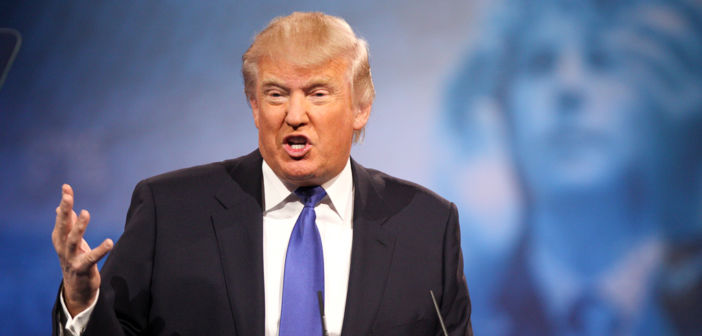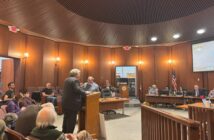After President Donald J. Trump was elected on Nov. 8, Lehigh professors shared their mixed views on the impending implications of his presidency. Just three weeks into his term, Trump has made highly debated appointments and signed controversial executive orders.
The immigration ban Trump’s administration is trying to implement has been one of his most controversial statements, both during his campaign and within the past few weeks. These travel measures are supposed to protect the country against current threats of terrorism.
Trump is barring entry from citizens of Iran, Iraq, Libya, Somalia, Sudan, Syria and Yemen, the all of which have Muslim majorities. In addition, the ban would impose a 120-day halt for all refugees. Many people are accusing the ban of being discriminatory, while Trump argues it is purely an issue of national security.
“I think that courts will likely uphold its constitutionality,” constitutional law professor Sean Beienburg said.
Beienburg added in the past, the courts have been deferential to both Congress and the executive branch on immigration issues. He said an interesting thing is this administration might cause people to reassess the extent on how much power is given to the president by delegation from Congress.
He said he thinks the administration will make people think about the left and right sides and what conversations are going to be had in Congress or with the president. If that pattern repeats itself, he said the immigration ban will be a major turning point for the United States.
“I’m not a lawyer, but I think the ban is probably constitutional,” economics professor Frank Gunter said. “The courts have generally given presidents wide latitude for issues involving either national security or international migration.”
Gunter highlighted the fiscal paradox of having both free immigration and a welfare state with a limited amount of money to distribute to various programs, as welfare programs — which cost the U.S. over $900 billion per year — can include illegal immigrants.
Another heavily debated topic is the nomination of conservative Supreme Court Judge Neil Gorsuch, a federal appellate judge for the 10th Circuit in Colorado. Gorsuch was the former classmate of Barack Obama at Harvard Law School, and holds other ties to Washington. If Congress confirms his nomination, the executive, legislative and judicial branches will all be tilted in favor of conservative ideology.
Gunter said he agrees that it might be a while before the branches are evened out. “Congress needs to recover its institutional ‘esprit de corps,’ with Republicans and Democrats working together to balance the president and the Courts,” he said. “Until that happens — and it may take years — I think that the president will dominate.”
One of the Obama administration’s key policies was the Affordable Care Act, which is set to be repealed by Trump. Speaker of the House Paul Ryan supports repealing and replacing the health care laws and will assist the Trump administration in enacting new policies. This act joins the immigration ban, nomination of a conservative Supreme Court Justice and the building of a wall on the Mexican border as focal points of the Trump campaign brought to reality.
“Whether you agree or disagree with his policy initiatives,” Gunter said, “he is doing what he said he would do during the campaign.”
Editor’s note: This article was amended to reflect Beienburg’s information and opinion more accurately.






Comment policy
Comments posted to The Brown and White website are reviewed by a moderator before being approved. Incendiary speech or harassing language, including comments targeted at individuals, may be deemed unacceptable and not published. Spam and other soliciting will also be declined.
The Brown and White also reserves the right to not publish entirely anonymous comments.
2 Comments
Are Trump critics more upset by his lies, by his fulfillment of campaign promises or by his being President?
Pingback: American politics | The Esprit de Corps Pointer